The Global Citizenship Alliance is dedicated to promoting education for engaged knowledge and responsible action in an interdependent world.
Our Story
The Global Citizenship Alliance (GCA) was created with the vision and support of U.S. college
leaders who saw the need to provide students with meaningful short-term international learning
experiences. What began as a pioneering initiative has grown into a truly global effort: today, the
Alliance offers week-long, intensive, immersive residential programs that bring college and
university students together to explore global challenges and shared responsibilities.
In addition to student programs, the Alliance provides special sessions for faculty and
administrators, equipping educators to integrate global citizenship into curricula, co-curricular
activities, and institutional strategies. These efforts strengthen campus global engagement and
prepare students for work, life, and citizenship in the 21st century.
From the outset, the GCA has sought to foster critical reflection on the impact of rapid
globalization and its implications for higher education. Over time, it has become one of the most
systematic and inclusive programs in global citizenship education in the United States and
internationally.
Formally established as an independent non-profit in 2015, the Alliance traces its roots to 2004,
when its work first began under the auspices of Salzburg Global Seminar, a renowned
international policy forum in Austria. The GCA continues to maintain a strong and enduring
partnership with Salzburg Global as it advances its mission to prepare students and educators to
engage the world with knowledge, empathy, and responsible action.
partnered with nearly
colleges and universities
close to
participants
conducted more than
week-long seminars

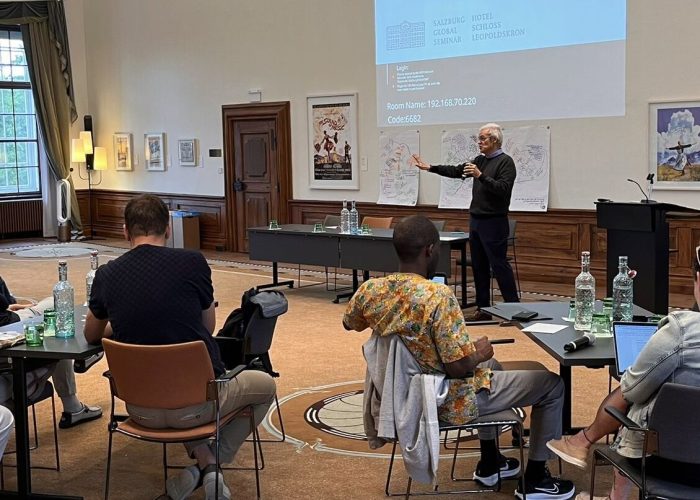
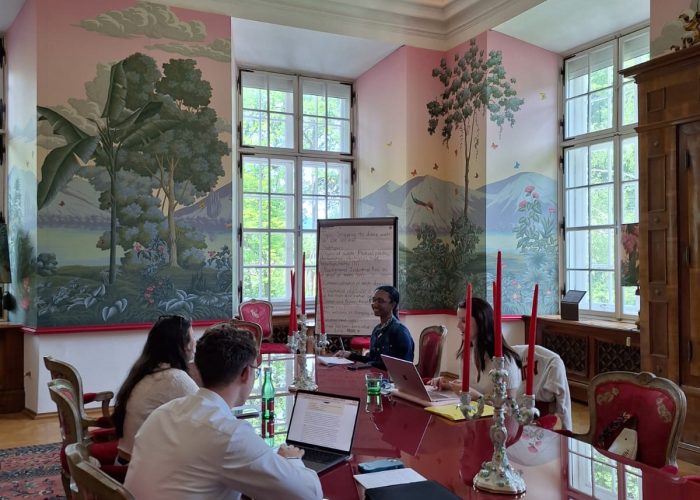
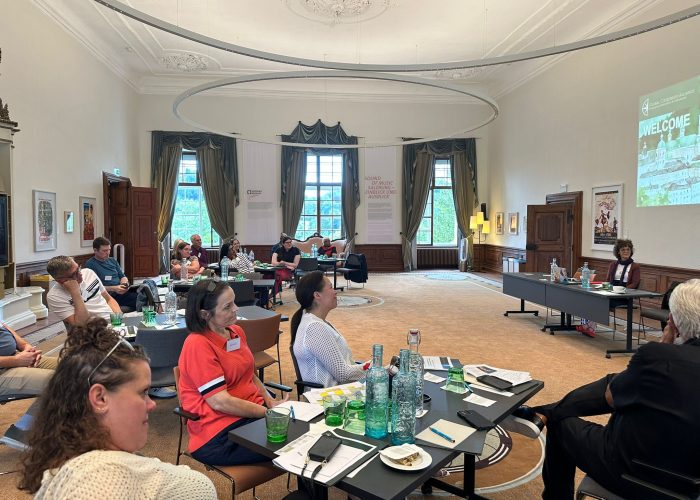
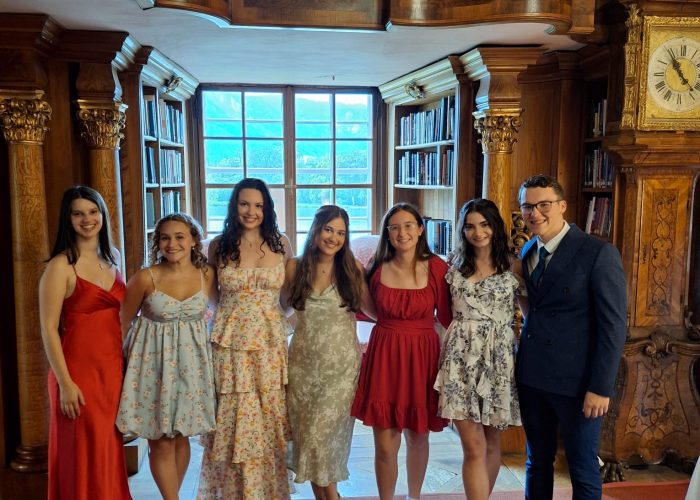
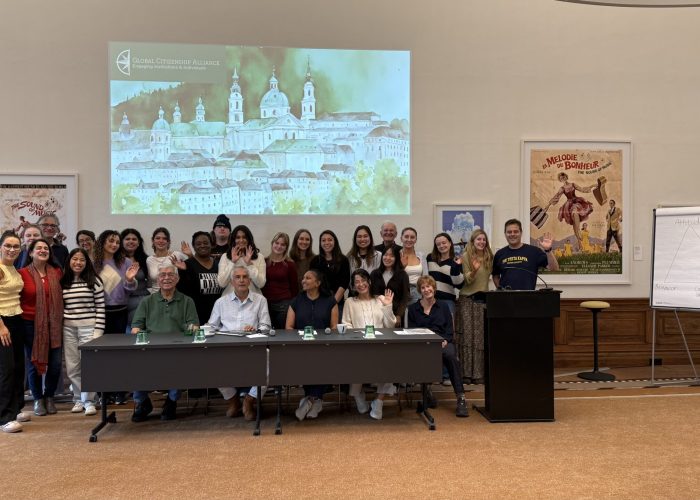
Why Global Citizenship Education?
Never before have the lives of people across the globe been more interconnected than they are
today. As political philosopher David Held observed, “We are no longer living in national
communities of fate, but in overlapping communities of fate.” Therefore, we must develop and
share the knowledge of how to manage this unprecedented interdependence in a way that makes
globalization a positive force for the majority of humankind and not a precept for increasing
inequality and conflict. Failure to do so is resulting in damage that jeopardizes the welfare of
humanity and the planet we inhabit.
Dawn Whitehead, AAC&U’s Vice President for Global Citizenship for Campus, Community,
and Careers, reminds us that: “Global learning is increasingly important for students in work,
life, and citizenship, and it is something that we can’t give them an option to opt out of.” At
GCA, we share this conviction. We believe that education for global citizenship and engagement
is not optional—it is an essential, integral dimension of 21st-century education.
The Global Citizenship Alliance Approach
The Alliance’s focus is on institutional development and change with the goal of
enabling colleges and universities to graduate students who are aware of their place in
a globalizing world, have a sound understanding of the challenges we are confronting,
and are willing and able to make a positive difference in the world.
Our Seminars offer a unique combination of intense, short-term study abroad
experiences for students and weeklong workshops for faculty and administrators aimed
at initiating, promoting, and informing strategies for global citizenship education
throughout the campus and making it part of the institutional fabric.
Until recently, programs were held exclusively in Salzburg, however, the Alliance is in
the process of expanding its areas of operations to additional locations in Europe, the
U.S., and other parts of the world.
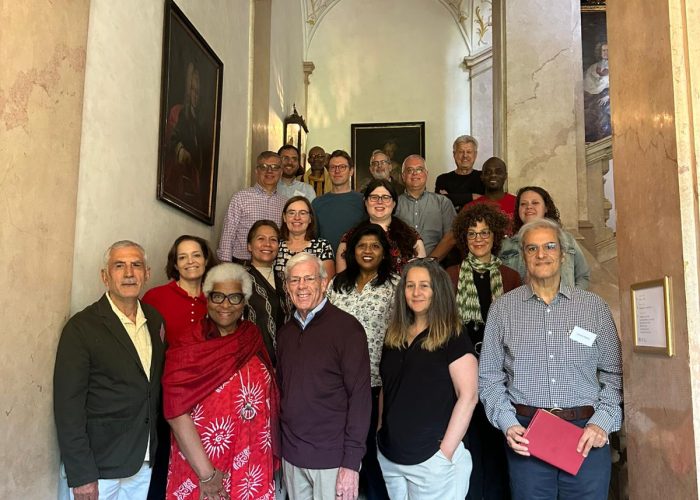
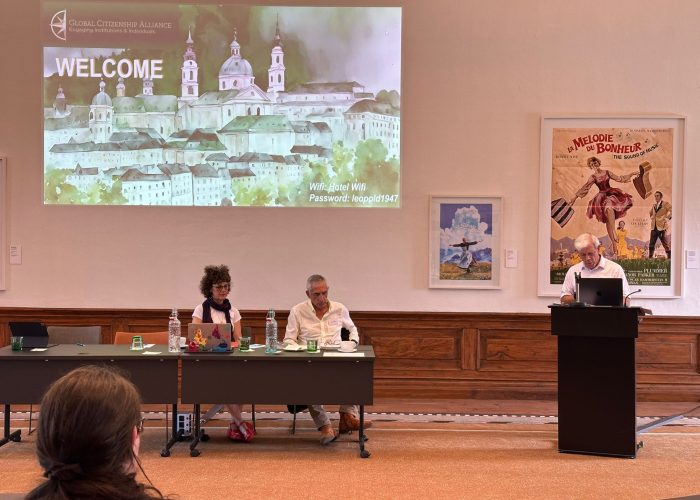
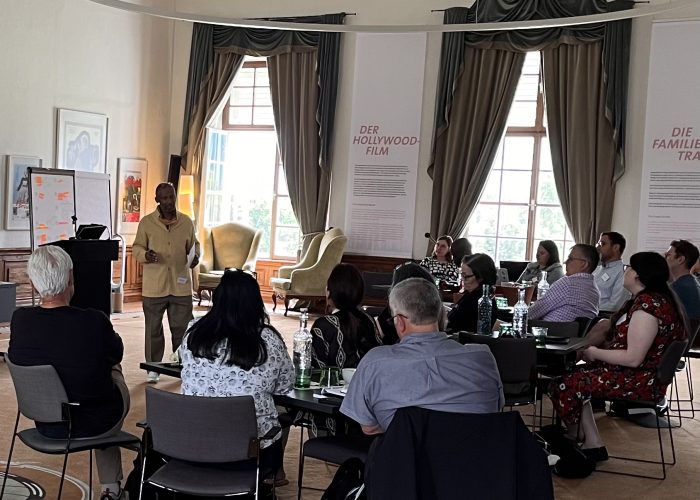
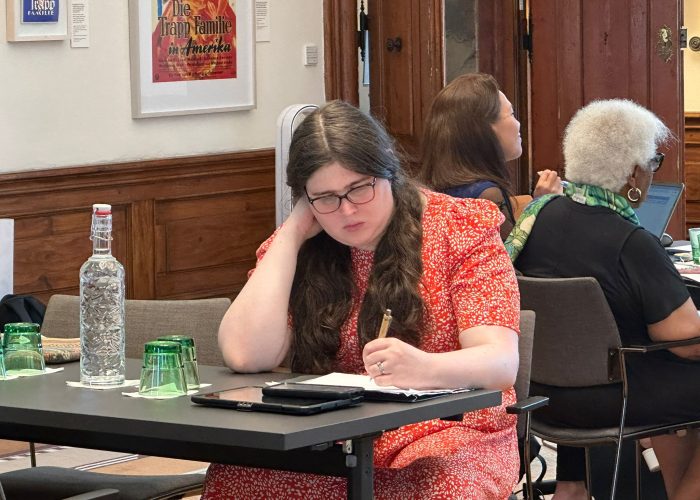
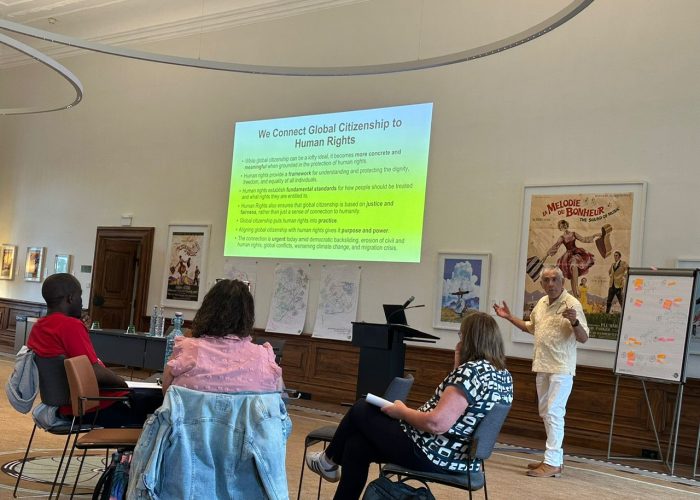
Outcomes
Partner institutions have
- re-oriented mission/vision statements, strategic plans, and student learning outcomes to include global perspectives.
- created countless new global education courses, programs, certificates, etc.
- built critical mass among faculty and administrators to launch and sustain an institution-wide change process to “globalize campus".
- formulated their own, institution-specific response to global literacy of their students.
- won prestigious national recognitions for their achievements in promoting global citizenship education such as NAFSA’s Paul Simon Awards for International Education, the Andrew Heiskell Awards for Innovation in International Education by the Institute for International Education, and “Top 10 Programs on Global Citizen Diplomacy” conferred by the U.S. Center for Citizen Diplomacy.
Participating students have attested to the transformative impact of the seminars and have been inspired to pursue further education and career choices with civic and global impact.
Participating faculty and administrators have returned to their institutions with a new sense of purpose and new insights on incorporating global perspectives into their teaching and leadership practices.